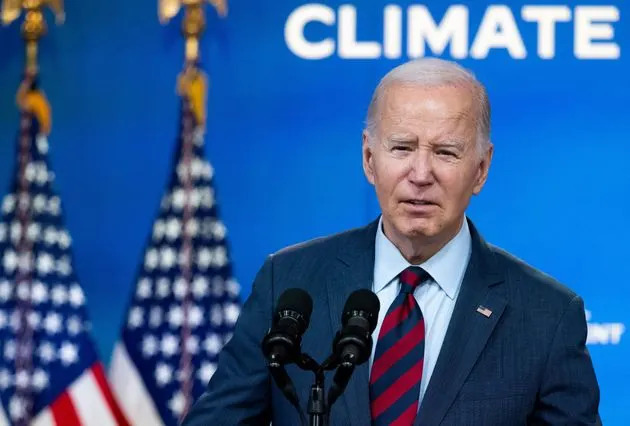U.S. President Joe Biden will not attend the United Nations’ major climate change conference this year as he handles the U.S. response to ongoing crises in Gaza and Ukraine, the White House said on Sunday, November 26th.
The U.N. summit, known as the Conference of the Parties, or COP, begins this week in Dubai. World leaders and envoys are expected to travel to the Emirate as scientists continue to warn the planet has entered “uncharted climate territory” due to the ongoing release of greenhouse gas emissions and a slower-than-necessary response to wean the world off fossil fuels.
The New York Times, citing a White House official, said Biden will not travel to Dubai despite attending the previous two COPs in Scotland and Egypt. John Kerry, the White House’s special envoy for climate change, will be in Dubai to represent the United States.
“Since day one, President Biden has led and delivered on the most ambitious climate agenda in history, both at home and abroad,” the White House said in a statement, obtained by Axios. “The administration looks forward to a robust and productive COP28 where Special Envoy John Kerry, National Climate Advisor Ali Zaidi, and Senior Advisor John Podesta, among others, will continue to build on the Administration’s historic actions to tackle the climate crisis.”

President Joe Biden delivers remarks on his Administration’s actions to address the climate crisis in the South Court Auditorium of the White House in Washington, D.C., on Nov. 14, 2023.
Other major figures are expected to be in Dubai over the next two weeks, including King Charles and Pope Francis.
Recent reports have only added urgency to scientists’ calls for the world to rein in the use of fossil fuels. The U.S. released its fifth National Climate Assessment earlier this month, which found the country is already dealing with a score of climate-related ills, including dramatic warming across America, an increase in weather-driven disasters and the growing threat of flood, fire and drought.
Biden at the time called climate change “the ultimate threat to humanity.”
The report came just before scientists warned 2023 is likely to be the hottest year since record-keeping began.
Still, the U.N. climate conference has often been touted as an annual effort to address those concerns, bringing about the likes of 2015′s Paris Climate Agreement. The U.S. and China — the planet’s two largest carbon emitters — also recently agreed to a new partnership that would see a dramatic expansion of renewable energy in the hopes of phasing out fossil fuels.
TYT Newsroom


